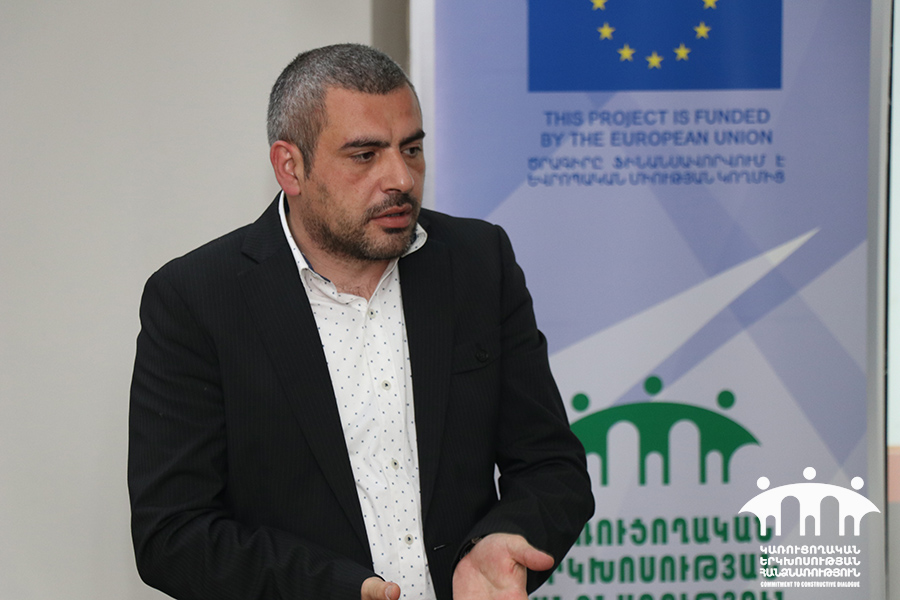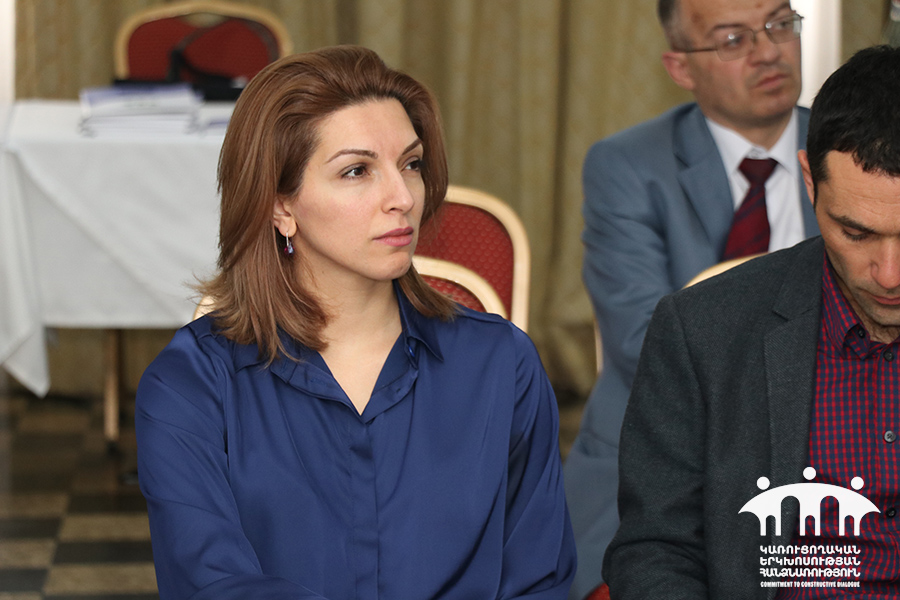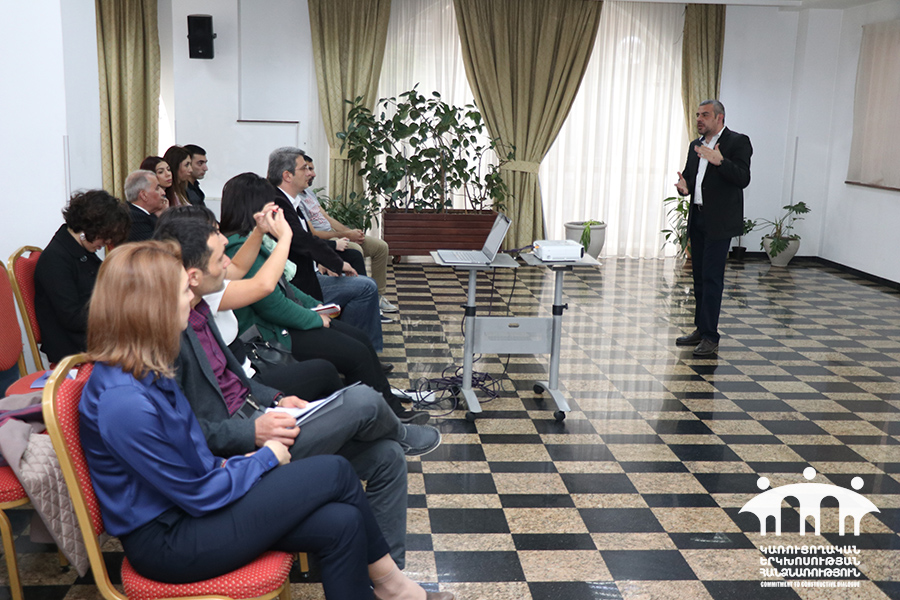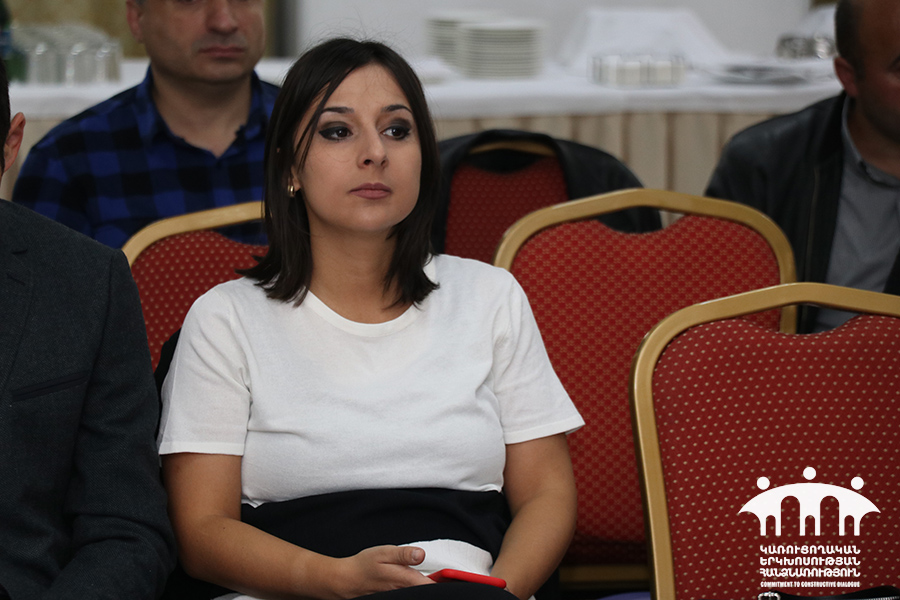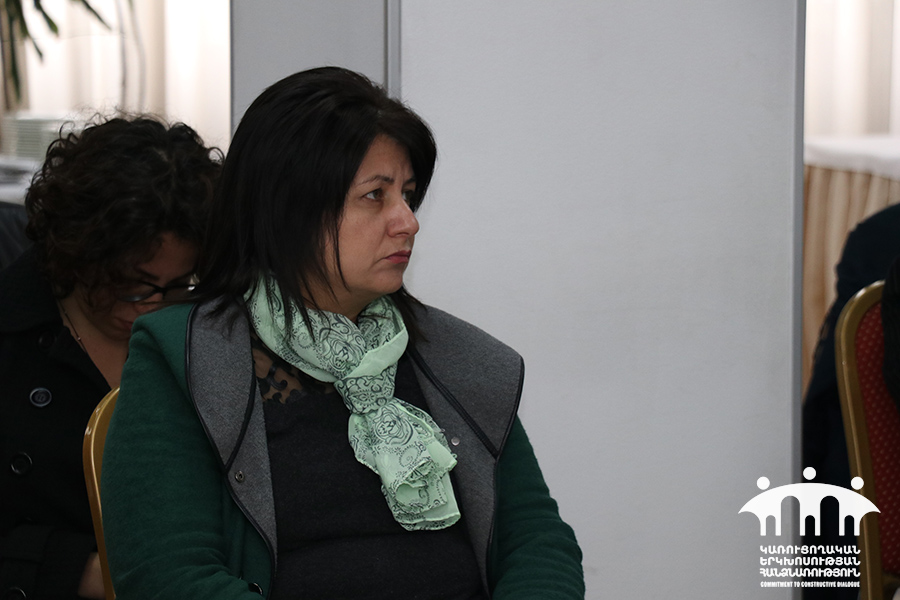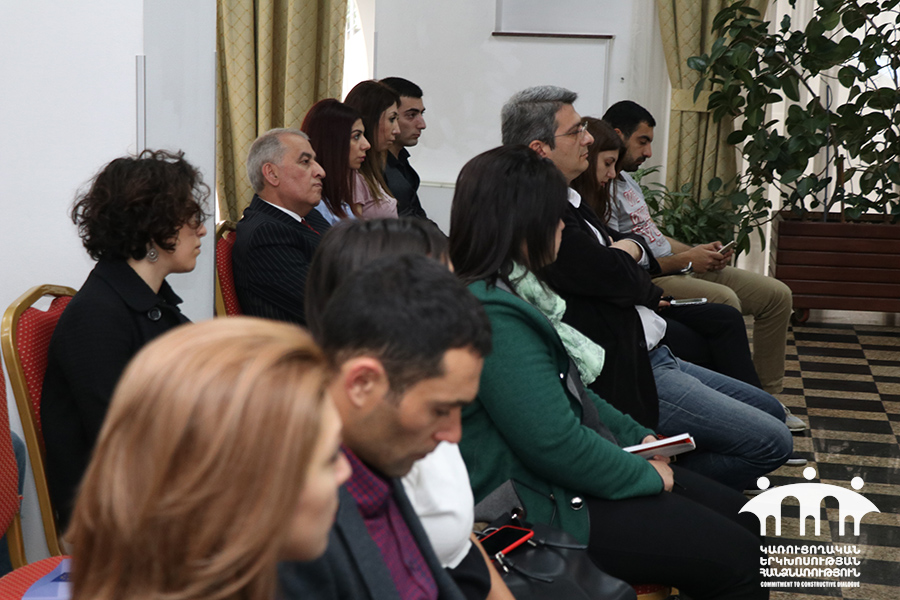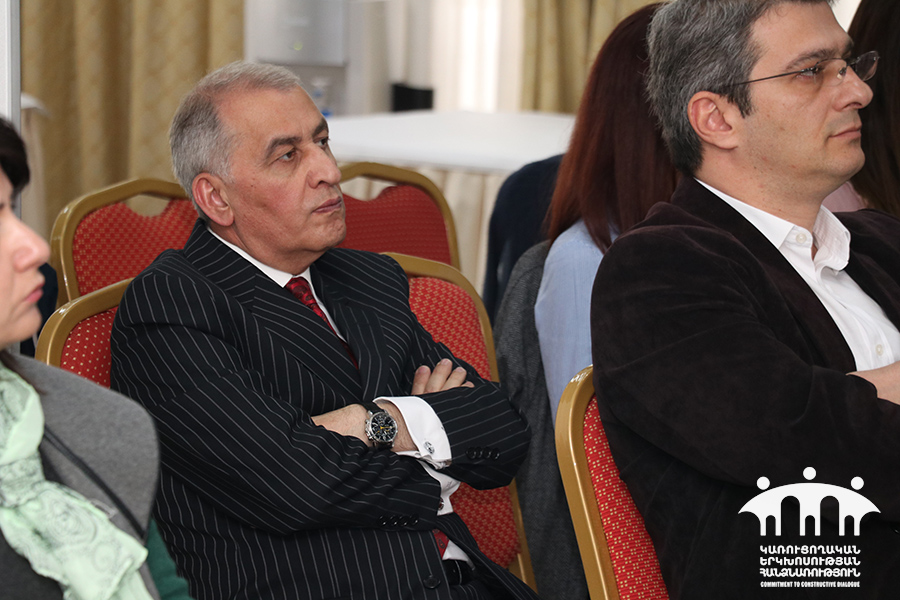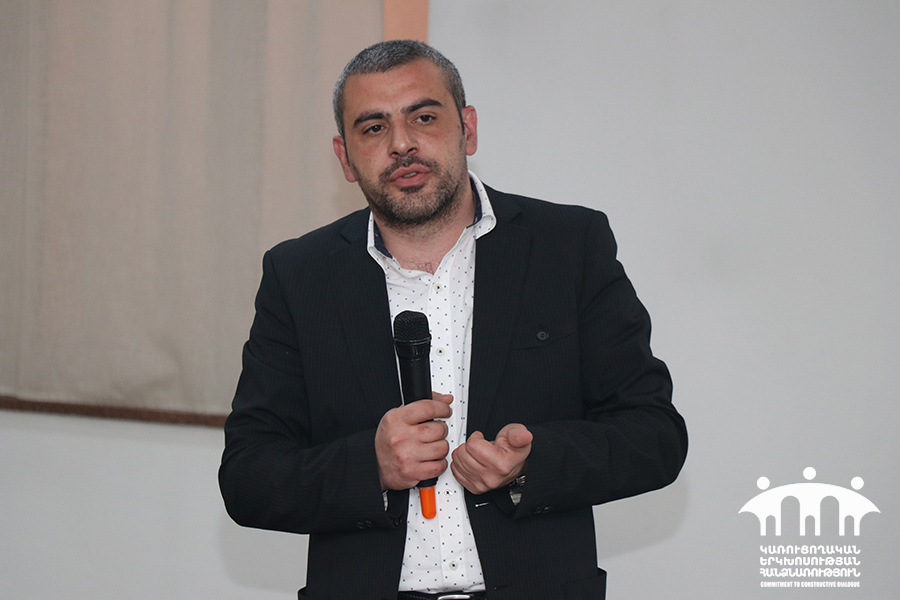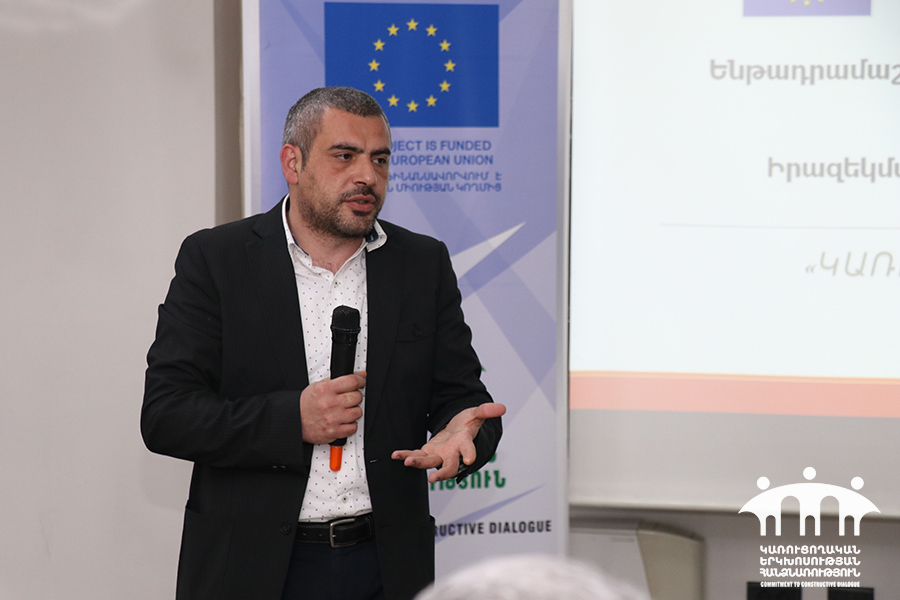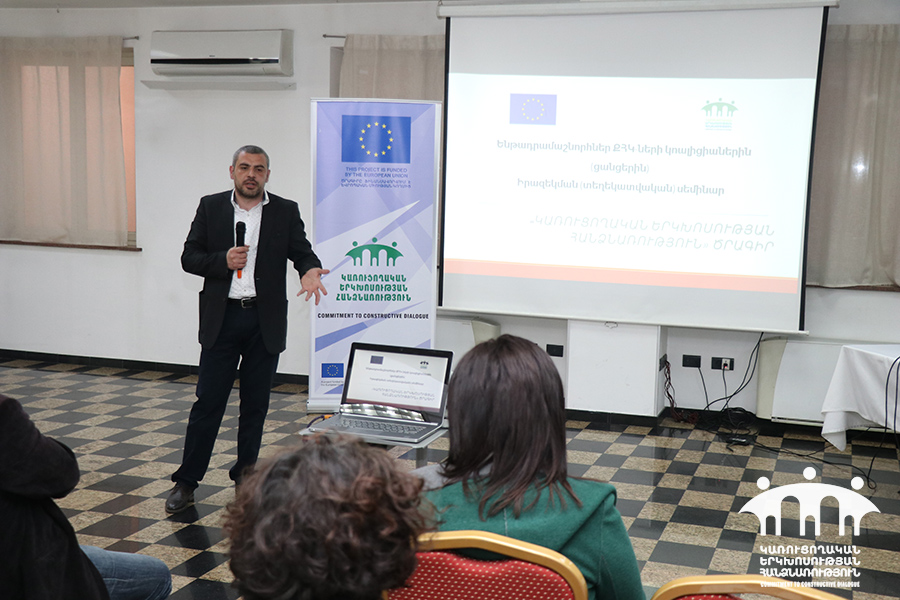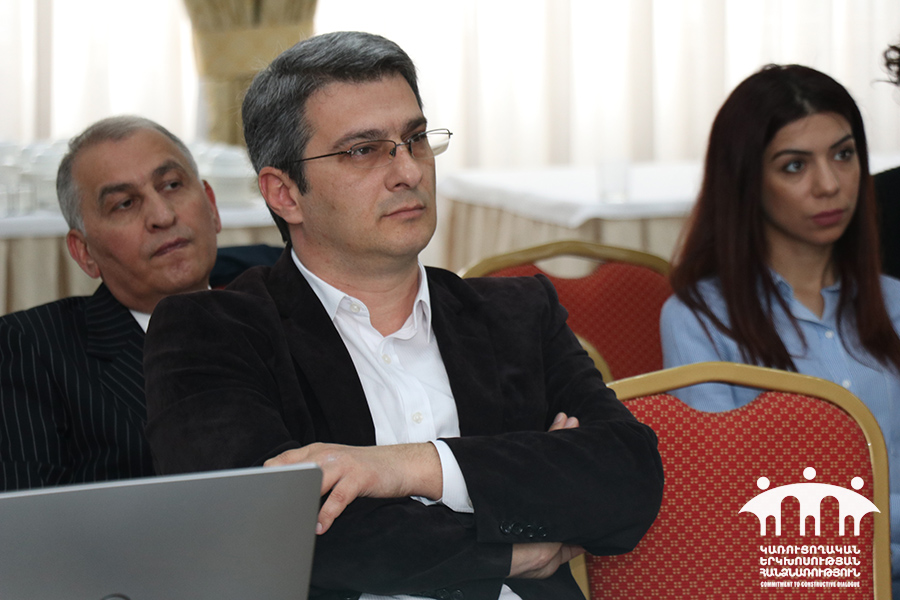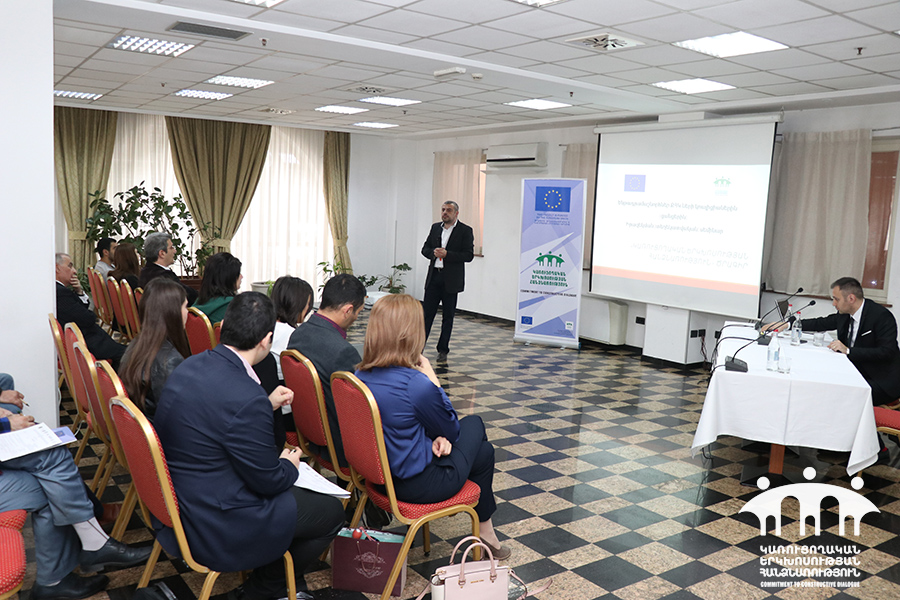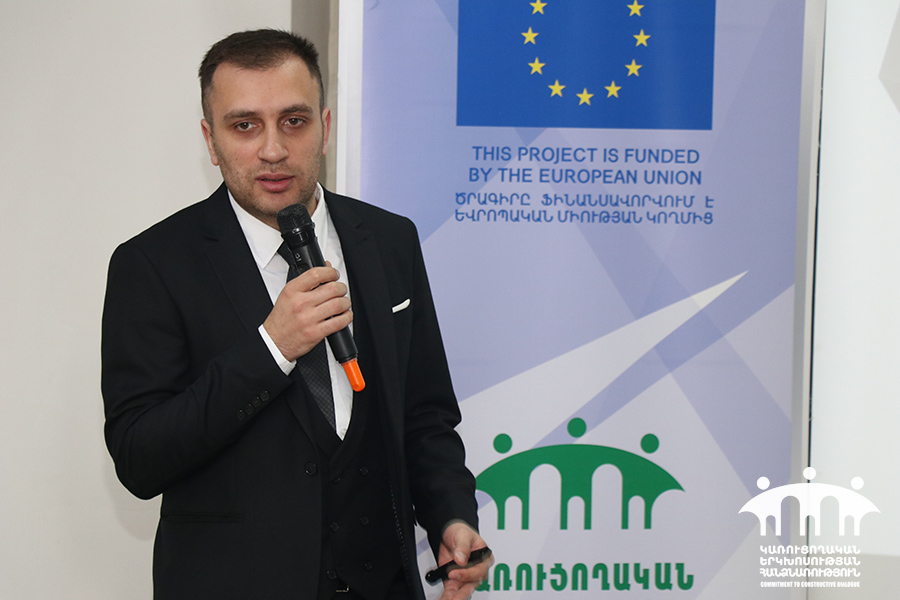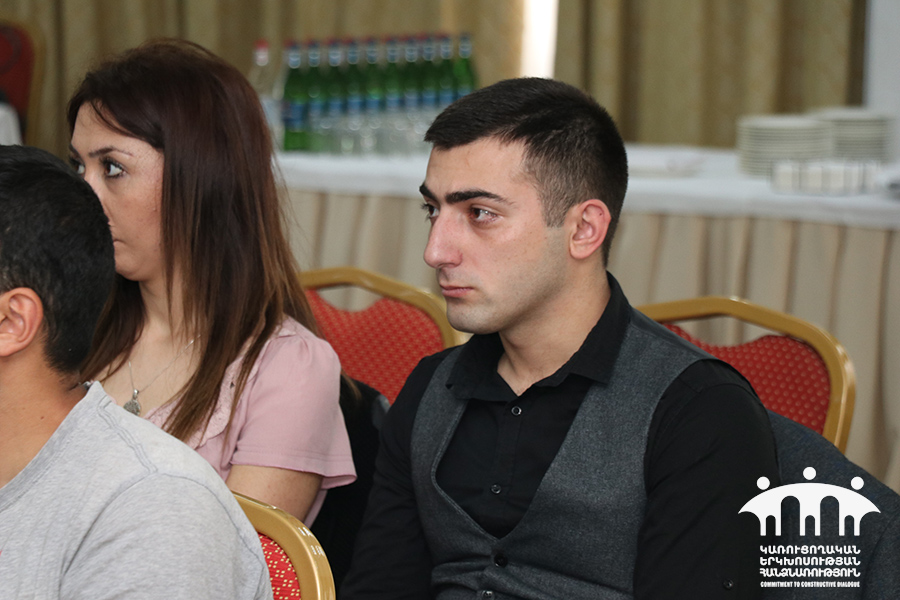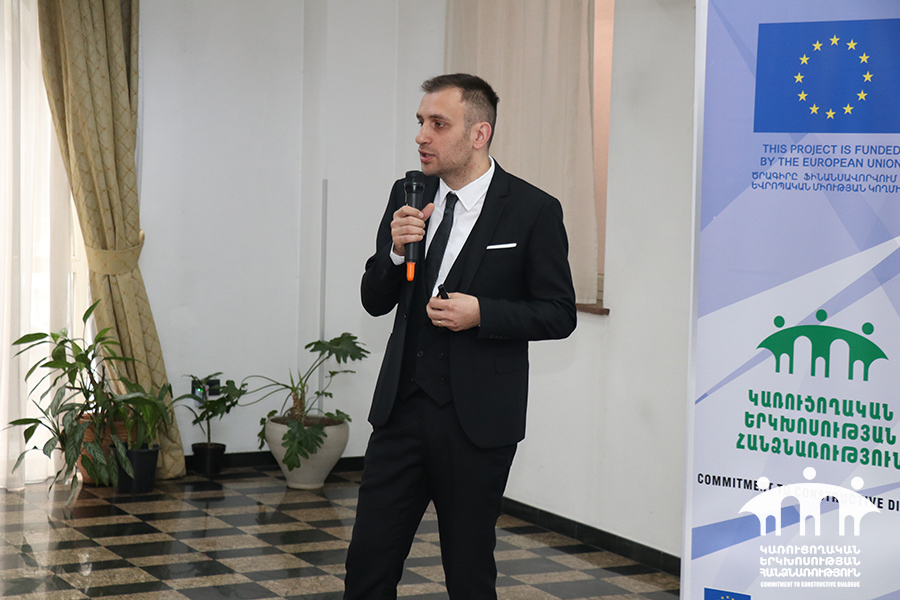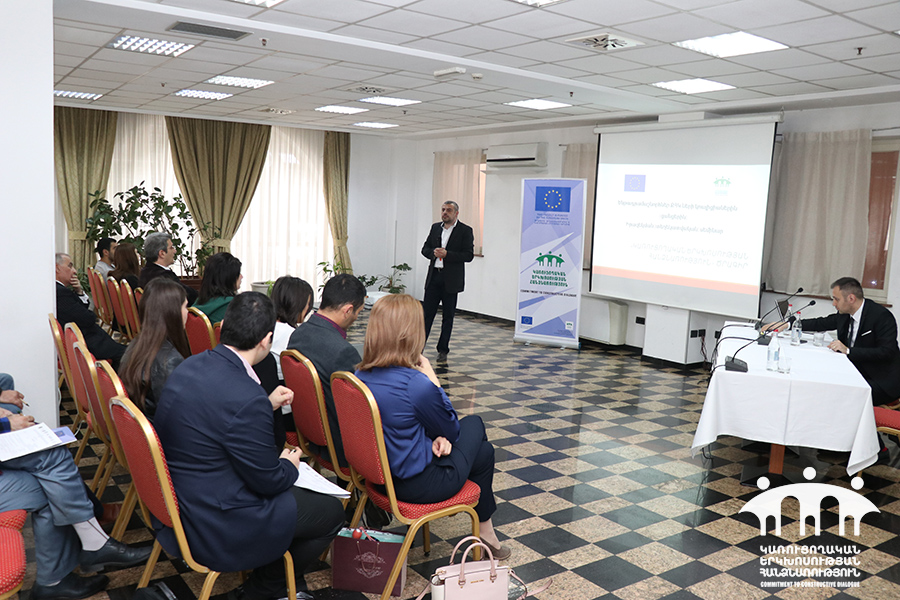
On 20 April, the issues identified in business and related issues sector were introduced to 23 civil society representatives and experts within the framework of the EU-funded “Commitment to Constructive Dialogue” Project.
During the meeting, the participants discussed issues related to the business sphere and activities aimed at solving these issues within the framework of the project.
Hakob Avagyan Business and Related Sectors Coordinator of the project, Executive Director of SME Cooperation Association presented the “Commitment to Constructive Dialogue” Project and the issues in the business sector; of one of the targeted areas of the project. One of the most important issues is the protection of business interests in Armenia and the introduction of the business ombudsman institute.
According to Hakob Avagyan, discussions over the importance of this institute have been taking place for already four years.
“The first draft law and concept was drafted in 2015 by the SME Associations, former government staff and EBRD Business Support Officers. Moreover, during the EBRD annual summarizing meeting in 2015, when Armenia was a favourable country for investment, the RA Minister of Economy and EBRD Yerevan Office officially announced the readiness to invest the Business Ombudsman institute in Armenia as another guarantee of attracting investments in Armenia,” Hakob Avagyan said.
He noted that the issue of the importance of introducing a business ombudsman’s office was also presented by the CSO Anti-Corruption Coalition of Armenia in 2015-16. The issue of introducing the Office of Business Ombudsman was available only in the last government program in fall 2016. “However, the latest shift in the issue that we recorded was in the summer of 2017 when the draft law developed by the Ministry of Justice was introduced to public discussion and since then we have no movement,” Hakob Avagyan added.
Head of the EBRD Business Support Office Gevorg Poghosyan spoke about the adoption and application of the SME strategy in Armenia. It was noteworthy that few people were aware that SME strategy had been developed in Armenia. The problem of making the strategy viable and applicable has been raised here as a problem.
The structures representing business interests were concerned with the fact that the strategy was adopted without an action plan and does not yet have any mechanism to control over the actions envisaged by the strategy, and control over the implementation of the actions, enforcement, and so on.
The structures representing business interests also highlighted the issue of institutionalization of the protection of business interests in Armenia. It will be a guarantee for foreign investors, disputes over SMEs will be solved in extra-judicial order, and there will be an opportunity to collect and monitor business complaints and problems and find consistent solutions for them.
There are also problems in the field of agriculture, one of which is the supply of agricultural products. The questions were presented by Oxfam Armenia expert Arthur Gomktsyan.
The participants discussed the problem from the point of view of what mechanisms can be developed, so that the villagers shall spend less time to buy and sell options, and instead develop the economy. The villagers spend a lot of time selling the product while they have to avoid such problems; a chain of actions should be taken so that the villagers think only about the food and its quality and not about realisation.
Susanne Soghomonyan, Coordinator of the Government-Civil Society Dialogue, of the project, presented to the participants that until 30 April, civil society representatives have the opportunity to form CSO Coalitions (Networks) and apply for a grant in the scope of the “Commitment Constructive Dialogue” Project.
She noted that sub-grants will be provided for the implementation of activities in the selected 9 target areas:
- Public Finance Management
- Human Rights:
- Justice
- Business
- Education
- Agriculture
- Economy
- Energy
- Social sphere: Social inclusion of children with disabilities
The main objective of the Project is to enhance the influence of CSOs on the public policy process, and the specific objectives are to strengthen the ability of CSOs to build coalitions and to strengthen the ability of CSOs to focus on constructive and strategic policy engagement with local and central government partners.
The “Commitment Constructive Dialogue” Project is implemented with the financial support of the European Union by a Consortium of civil society organisations, which are the Armenian Lawyers’ Association (lead organisation), Agora Central Europe (NGO based in the Czech Republic), the Armenian Centre for Democratic Education-CIVITAS, the International Centre for Human Development, the SME Cooperation Association and the Union of Communities of Armenia.


